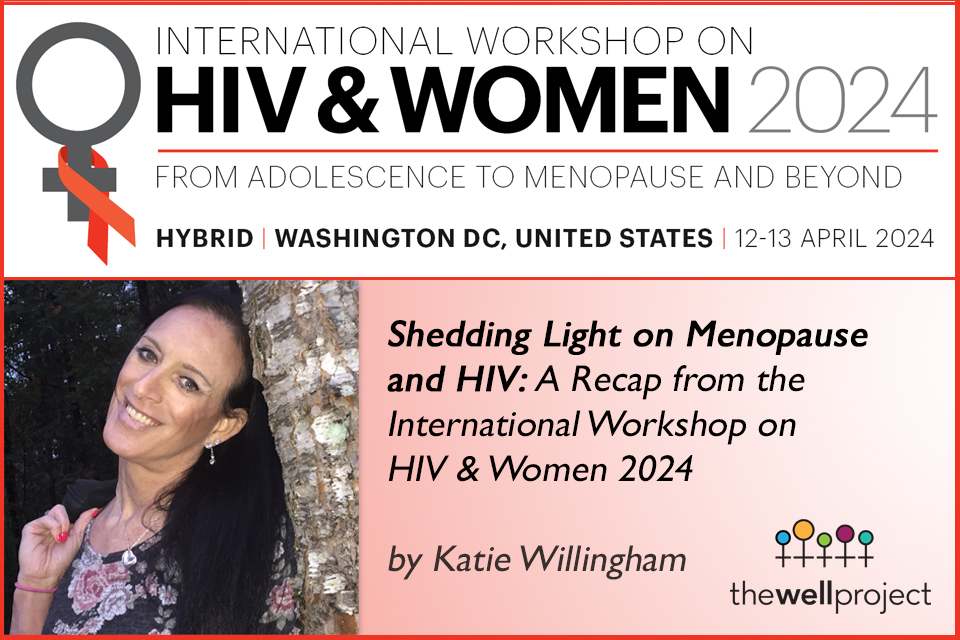
By Katie Willingham
Several members of The Well Project's team observed the April 2024 International Workshop on HIV & Women, from on the ground in Washington, DC, as well as virtually. Read on for this author's take on some of the information presented.
Though I have no personal experience with menopause, I thought that Karoline Aebi-Popp, PD, MD, MSc, of University Hospital Bern in Switzerland, did a great job explaining how menopause is affected by HIV. She talked about the unfortunate history of menopause and how women in the 1800s would put leeches on their genitalia to treat the "disease" of menopause, how menopause was seen as a deficiency disease, and women were seen as "deformed males." I was amazed by how far we've come; but yet, not far enough.
A high percentage of women living with HIV are of menopausal age, between 39 and 49 years old, and the proportion of post-menopausal women has tripled from 2010 to 2018. There are many things that women living with HIV should consider when they reach menopausal age, like bone density, cardiovascular disease, breast cancer, cognitive decline, mood disorders, hot flashes, weight gain, sleep disturbances, vaginal dryness, and sexual dissatisfaction.
Now here's something that really caught me by surprise: You should take contraception for one year after menopause if you're over 50 years old, and for two years if you're under 50. I had no idea that menopausal women had a chance of becoming pregnant and would need contraception.
Dr. Aebi-Popp did mention something that I could relate to; she called it disentangling. She said women living with HIV must ask the questions of whether their symptoms are related to menopause? Aging? HIV treatment? Depression? Or something else? I can absolutely relate to this as an aging woman living with HIV, depression, anxiety, and other health conditions. I know it's always so hard to weed out the culprit of a health issue when you live with so many possible causes.
I learned a lot about menopause in this presentation and I'm grateful for it. You don't have to experience something to have empathy for others who do.
More from The Well Project on the International Workshop on HIV & Women 2024 (IWHW 2024)
- Alabama-Based HIV Researchers Discuss Care and Prevention Concerns: A Recap from the International Workshop on HIV & Women 2024 by Katie Willingham
- Debating the Role of HIV Treatment in Hypertension: A Recap from the International Workshop on HIV & Women 2024 by Katie Willingham
- HIV and Infant Feeding Around the World: A Recap from the International Workshop on HIV & Women 2024 by Olivia G. Ford
- The International Workshop on HIV and Women by Katie Willingham on A Girl Like Me




